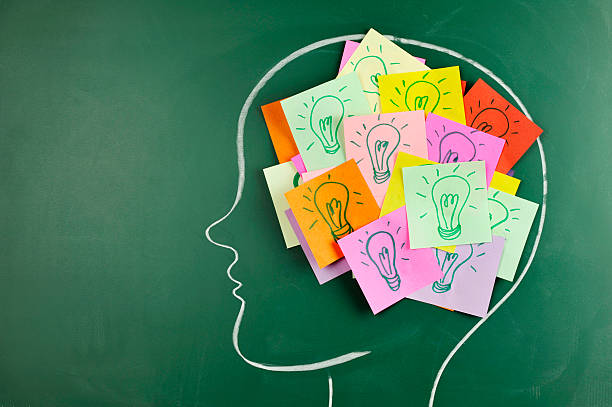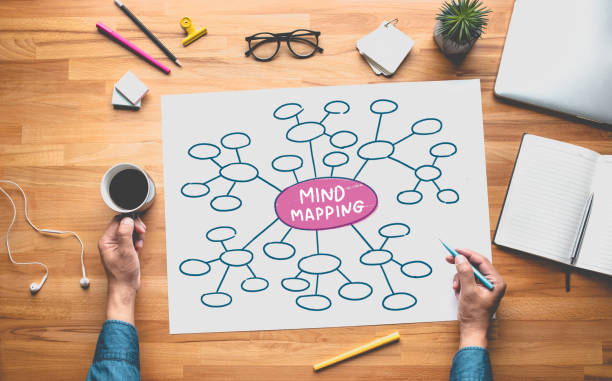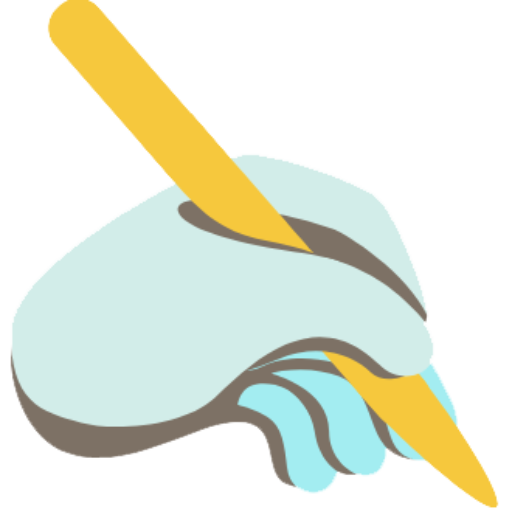
Ever wondered what sets top students from the rest? You’re not alone. You might look at the students who seem to effortlessly ace every exam and wonder, “How do they do it?” You might think they’re just naturally smarter, but the truth is, they’ve simply mastered how to study smart. It’s not about innate genius, it’s about having effective strategies. Effective study habits aren’t just important for acing exams, they can transform your overall learning experience. They help you retain information longer, boost your confidence, and reduce stress.
This blog post will unlock the secrets of how top students study. We’ll explore practical, actionable tips you can implement right away to learn smarter and study like a pro. These aren’t magic tricks, but proven techniques that can transform your academic performance. We will cover everything from planning and organization to active recall, focused study, effective note taking, and the crucial importance of self care.
Planning and Organization
Imagine trying to build a house without blueprints. It would be chaotic, inefficient, and likely to collapse. This is because you don’t actually know where to start from and how to finish it. The same applies to studying. Effective planning and organization are the foundation of how to study smart.
Importance of creating a study schedule/timetable:
A study schedule is your roadmap to academic success. It helps you allocate specific times for different subjects, ensuring you cover everything without feeling overwhelmed. Think of it as time blocking for your brain. Instead of vaguely planning to “study math sometime this week,” schedule “Math, Chapter 3 review” for Tuesday from 6 PM to 7:30 PM.
- Tips for sticking to it (being realistic, building in breaks)
A rigid, impossible-to-follow schedule is useless. Be realistic about how much time you can dedicate each day and build in short breaks to avoid burnout. If you know you get tired after an hour of focused study, incorporate 10-15 minute breaks to stretch, grab a snack, or do something relaxing.
- Organizing study materials
Disorganized notes and textbooks can lead to wasted time and frustration. Having a system for organizing your materials is crucial for efficient studying. Use color coded folders or binders for each subject. Keep loose papers in sheet protectors.
- Importance of neat notes and folders:
Neat notes are easier to review and understand. Organized folders prevent you from losing important information. This is a key part of how top students study. Imagine searching frantically for a crucial handout the night before an exam. With organized folders, you can find what you need instantly.
- Using digital tools for organization (cloud storage, note-taking apps)
Digital tools can significantly enhance organization. Cloud storage ensures your files are safe and accessible from anywhere. Note taking apps offer features like tagging, searching, and syncing across devices. Google Drive, Dropbox, Evernote, and OneNote are popular options. These tools help you learn smarter by keeping everything in one place.
- Prioritize Tasks
Not all study tasks are created equal. Use methods like the Eisenhower Matrix (urgent/important) to prioritize what needs your immediate attention. An upcoming test is both urgent and important, while reviewing older material might be important but not urgent.
- Set Realistic Goals
Break down large tasks into smaller, more manageable steps. This makes studying less daunting and provides a sense of accomplishment as you complete each step. Instead of aiming to “finish the entire textbook this week,” set a goal of “read Chapter 1 and complete the practice questions.”

Active Recall & Spaced Repetition
Passive rereading is a common study trap. It gives you the illusion of knowing the material, but it doesn’t lead to deep understanding or long-term retention. Active recall and spaced repetition are far more effective strategies for how to study smartly.
Active recall involves actively retrieving information from your memory. This strengthens neural connections and makes it easier to remember the material later. It’s a core element of how top students study.
Instead of simply rereading a chapter on the American Revolution, try to write down everything you remember about the key events, figures, and causes.
Flashcards, practice questions, teaching the material to someone else: These are great ways to practice active recall. Flashcards force you to retrieve information from memory. Practice questions simulate exam conditions. Teaching someone else requires you to organize and explain the material in your own words.
Use flashcards to memorize vocabulary words, work through practice math problems, or explain a historical concept to a friend or family member.
Spaced repetition involves reviewing material at increasing intervals over time. This helps solidify information in long-term memory. Example, review material one day after learning it, then again three days later, then a week later, and so on.
- Benefits for long term retention
Spaced repetition combats the forgetting curve, which shows that we tend to forget information quickly if we don’t review it. By spacing out reviews, you reinforce learning and make it stick. This is how to study smart for lasting results. For instance, if you learn a list of vocabulary words on Monday, review them on Tuesday, Thursday, and then the following Monday.
- Tools that can help (flashcard apps with spaced repetition features)
Several apps, like Anki and Quizlet, incorporate spaced repetition algorithms, automatically scheduling reviews for optimal retention. These tools help you learn smarter by taking the guesswork out of scheduling reviews.
For example, Anki uses a sophisticated algorithm to determine when you should review each flashcard based on your previous performance.
- Use Practice Tests
Simulate exam conditions by taking practice tests under timed conditions. This helps you identify weak areas and get comfortable with the test format. For instance, If you have a history exam, find old tests or create your own practice test using past lecture notes and readings.
- Explain Concepts Out Loud
Verbalizing what you’ve learned forces you to process the information more deeply and identify any gaps in your understanding. Try explaining a complex scientific concept to an imaginary audience or even to yourself in a mirror.

Focused Study Sessions
Distractions are the enemy of effective studying. It’s easy to get sidetracked by social media, notifications, or even just wandering thoughts. Creating focused study sessions is key to how to study smart and maximize your learning. Consider these factors.
- Study in focused bursts with short breaks (Pomodoro Technique): This technique involves working in 25-minute focused intervals (called “pomodoros”) followed by 5-minute short breaks. After four pomodoros, you take a longer break of 15-20 minutes. Example, set a timer for 25 minutes and focus solely on your study material. When the timer goes off, take a 5-minute break to stretch, grab a drink, or walk around.
The Pomodoro Technique helps you maintain focus by breaking down study time into manageable chunks. The short breaks prevent mental fatigue and burnout. This is how top students study for extended periods without losing concentration.
Make it this way, if you have a three-hour study session, break it down into six Pomodoro’s with short breaks in between and a longer break in the middle.
- Minimizing distractions, creating a dedicated study space
A dedicated study space free from distractions is essential. This could be a quiet corner in your room, a library, or a study room. Choose a space with good lighting, minimal noise, and a comfortable temperature.
- Tips for dealing with phones, social media, etc.
Put your phone on silent or turn it off completely during study sessions. Use website blockers or app timers to limit access to distracting websites and apps. Inform family or housemates that you need uninterrupted study time. These are crucial tips to learn smarter. Use an app like Freedom or Forest to block distracting websites and apps during your study time.
- Use Noise Cancelling Headphones: If you study in a noisy environment, noise cancelling headphones can help you block out distractions and focus better.
Use noise cancelling headphones with instrumental music or white noise to create a more focused study environment.
- Batch Similar Tasks
Group similar tasks together to minimize mental switching costs. For example, answer all your emails at once, then move on to studying.
Instead of checking your email every few minutes while studying, dedicate a specific time slot to check and respond to emails.
- Establish a Routine
Having a consistent study routine can help train your brain to focus and prepare for learning. Try studying at the same time each day in the same location to create a consistent study routine.

Taking Effective Notes
Note taking is more than just transcribing what the teacher says. Effective note-taking is about actively processing and understanding the information. This is a vital skill for how to study smart. There are various note taking methods, and finding the one that suits your learning style is essential. Here are a few popular options.
- The Cornell Method: This method involves dividing your page into three sections: cues (keywords or questions), notes (main points), and summary (a brief summary of the main ideas).
Example, during a lecture, take notes in the main notes section. After the lecture, write keywords or questions related to the notes in the cues section, and then summarize the main points in the bottom section.

- Mind mapping: This visual method involves creating a central idea and branching out with related concepts and subtopics. Example, for a history lesson on World War II, the central idea could be “World War II,” with branches for causes, key events, major figures, and consequences.
- Sketch noting (visual notes): This method combines drawings, symbols, and text to create visually engaging notes. Instead of just writing “photosynthesis,” you could draw a plant with arrows showing the process of light and water being converted into energy.
Finding the method that works best for you
Experiment with different methods to see which one helps you understand and retain information best. Some students prefer linear notes, while others find visual methods more effective. This is a key part of how top students study efficiently.
Try the Cornell Method for detailed lectures, mind mapping for brainstorming sessions, and sketch-noting for visual subjects like art or biology.
- Importance of reviewing and editing notes
Reviewing and editing your notes shortly after taking them helps reinforce learning and identify any gaps in your understanding. For instance, within 24 hours of a lecture, review your notes, fill in any missing information, and summarize the main points in your own words.
- Use Abbreviations and Symbols
Develop a system of abbreviations and symbols to speed up your note-taking process during lectures. For example, use “w/” for “with,” “b/c” for “because,” or arrows to show relationships between concepts.
- Rewrite Your Notes in Your Own Words
After reviewing your notes, rewrite them in your own words. This helps you process the information more deeply and improve your understanding.
After taking notes on a chapter, try explaining the key concepts to yourself or a friend using your own words.
- Use Different Colors: Using different colors can help organize your notes and make them more visually appealing. Use one color for main points, another for subpoints, and a third for examples.

Taking Care of Yourself
It’s easy to get so caught up in studying that you neglect your physical and mental well-being. However, taking care of yourself is crucial for optimal academic performance. This is an often overlooked aspect of how to study smart.
- The link between physical health and academic performance: Your physical health directly impacts your cognitive function, energy levels, and overall mood. When you’re healthy, you can focus better, remember more, and handle stress more effectively. This is a vital part of how do top students study with consistency.
Imagine trying to study for an exam while battling a cold. Your concentration will be impaired, and you’ll likely feel sluggish and unmotivated.
- Getting enough sleep: Sleep is essential for memory consolidation and cognitive function. Aim for 7-9 hours of quality sleep each night.
Pulling an all-nighter before an exam might seem like a good idea, but it can actually impair your performance due to sleep deprivation.
- Eating nutritious food: Fuel your brain with healthy foods like fruits, vegetables, whole grains, and lean protein. Avoid processed foods, sugary drinks, and excessive caffeine.
For instance, Instead of grabbing a sugary snack before studying, opt for a handful of nuts or a piece of fruit.
- Regular exercise: Exercise boosts blood flow to the brain, improves mood, and reduces stress. Aim for at least 30 minutes of moderate-intensity exercise most days of the week.
This can be in the form of a brisk walk, running, or doing some yoga to clear your mind and boost your energy levels before or after studying.
- Managing stress: Stress can negatively impact your focus, memory, and overall well-being. Find healthy ways to manage stress, such as meditation, deep breathing exercises, spending time in nature, or engaging in hobbies. This is crucial to learn smarter and maintain a healthy balance.
In my case, if I am feeling overwhelmed by an upcoming exam, I try taking a short break to meditate or listen to calming music.
- Stay Hydrated: Dehydration can lead to fatigue, headaches, and decreased cognitive function. Carry a water bottle with you and sip on it throughout the day.
Or keep a water bottle on your desk while studying and make sure to refill it regularly.
- Take Breaks for Fun and Relaxation: It’s important to schedule time for activities you enjoy, even during busy study periods. This helps prevent burnout and keeps you motivated.

Practical Tips From a Top Student, How Top Students Study
Succeeding in your studies often boils down to understanding the material deeply and managing your time wisely. Here’s a breakdown of key strategies to help you excel:
1. Build a Strong Foundation
Start by ensuring you have a solid grasp of the basics, as most advanced topics build directly on them. Many students think they understand a concept but struggle with fundamental ideas when faced with challenges later. Spend time mastering the core principles to avoid this.
For subjects like math or computer science, understanding comes in two parts:
- Intuition: Build a mental model of the concept. Working through examples is a great way to develop this.
- Formal Reasoning: Practice breaking down problems step-by-step using logic or algebra. This is crucial for solving proofs, algorithms, and other complex tasks.
2. Manage Your Time Wisely
Not all classes require the same effort. If one subject clicks for you while another feels more challenging, allocate your study time accordingly. Remember: study smart, not just hard.
Tips for Different Aspects of Learning
During Lectures
Your experience in class will likely fall into one of these categories:
- The material feels too fast: Prepare by reviewing readings beforehand and revisiting lecture notes afterward. Office hours or recitation sessions can also help clarify tricky concepts.
- You’re following along but need deeper understanding: Go over the lecture notes to reinforce what you’ve learned. Focus on solving problems to connect the “how” with the “why.”
- You already know the material: Skim the notes to confirm your understanding, but you may not need extra prep.
Pro Tip: Pay attention to how your professor explains concepts. Some focus on visuals and metaphors, while others dive straight into equations. Adapting to their teaching style can make lectures more effective.
Working on Problem Sets
Problem sets are your best tool for assessing how well you’ve understood the material. Here’s a step-by-step approach:
- Read the entire problem set.
- Start with the easiest question and work through it. If you’re stuck, move to the next easiest.
- Take a short break after your first attempt, then tackle the remaining problems. Spend no more than 30 minutes on a single problem before seeking help.
Learning from mistakes is just as important as solving problems correctly. If you’re still stuck, reach out to classmates, TAs, or professors for guidance.
Studying for Tests
- Start with a practice test: Attempt it without notes to identify your weak areas. This helps focus your study time effectively.
- Review thoroughly: Study the topics you struggled with and ensure you also cover areas that weren’t on the practice test.
- Understand the format: Look at the class coverage of each topic to predict the difficulty and focus of test questions.
Extra Tip: Help others study. Teaching someone else is a great way to uncover gaps in your knowledge.
Taking Tests
- Read through the entire test first. Start with the easiest problems and tackle high-point questions next.
- If stuck, show your work and move on. Partial credit can make a big difference.
- For tough, non-trivial problems, trust your intuition and give it your best shot—professors often award partial credit for thoughtful attempts.
When You Feel Overwhelmed
If you’re struggling to keep up, don’t panic. Go back to the basics and rebuild your understanding at your own pace. Advanced topics often consist of simple steps layered on top of each other. By revisiting foundational concepts, you’ll gradually make sense of the more complex material.
Learning how to study smart is a skill that anyone can develop. It’s not about being born a genius, it’s about implementing effective strategies and cultivating good study habits. We’ve covered several key secrets in this blog post, from planning and organization to active recall, focused study, effective note-taking, and the crucial importance of self-care.
Let’s recap the key study secrets to help you study like a pro:
- Plan and Organize: Create a realistic study schedule, organize your materials, and prioritize tasks.
- Use Active Recall and Spaced Repetition: Test yourself regularly and review material at increasing intervals.
- Study with Focus: Minimize distractions, use the Pomodoro Technique, and create a dedicated study space.
- Take Effective Notes: Experiment with different note-taking methods and review your notes regularly.
- Take Care of Yourself: Prioritize sleep, nutrition, exercise, and stress management.
We encourage you to experiment with these different strategies and find what works best for you. Not every technique will be a perfect fit, and that’s okay. The key is to be adaptable and find a combination of strategies that helps you learn smarter and achieve your academic goals.
Remember, effective study habits can be learned by anyone, so start implementing these tips today and unlock your full learning potential!
What are your favorite study tips? Share them in the comments below! We’d love to hear from you.

Frequently Asked Questions (FAQ)
1. How can I stay motivated to study every day?
Staying motivated can be challenging, but it’s all about creating a routine and setting small, achievable goals. When you break big tasks into smaller chunks, each accomplishment feels rewarding. Also, don’t forget to celebrate your progress, even if it’s something small, like completing a chapter or solving a difficult problem.
2. How do I balance studying with my social life?
The key to balancing study and social life is time management. Set aside specific times for studying and specific times for social activities. Use tools like Google Calendar to schedule both. Remember, it’s about quality, not quantity for studying efficiently, and you’ll have more time for fun.
3. How do I avoid procrastination?
Procrastination is common, but you can fight it with a few strategies:
- Break tasks into smaller, more manageable pieces.
- Use the “2-Minute Rule” (if a task takes less than 2 minutes, do it right away).
- Set a timer and commit to working for just 10–20 minutes, then take a break. You’ll be surprised how much you can accomplish when you get started.
4. How can I improve my concentration during study sessions?
To improve concentration, eliminate distractions by turning off notifications and using apps like Forest to stay focused. Take regular breaks using techniques like the Pomodoro method to maintain mental energy. A comfortable study environment with good lighting and a tidy desk also helps improve focus.
5. Should I study alone or with a group?
Both have their advantages. Studying alone helps you focus and retain information better, while group study sessions can provide diverse perspectives and motivate you. A good strategy is to mix both. Study independently for focused learning, then meet with friends for discussions and collaborative problem-solving.
6. How do I handle stress before exams?
Stress before exams is normal, but managing it is essential. Practice mindfulness techniques like deep breathing or meditation to calm your nerves. Plan your revision in advance to avoid last-minute cramming, and take regular breaks to relax. A balanced diet and plenty of sleep also help keep stress levels under control.7. How can I make my study sessions more effective?
Make your study sessions more effective by using active learning techniques like summarizing, self-quizzing, and teaching the material to others. Avoid passive studying methods like just reading notes. Incorporate visual aids like mind maps and diagrams to reinforce your understanding.

Add a Comment